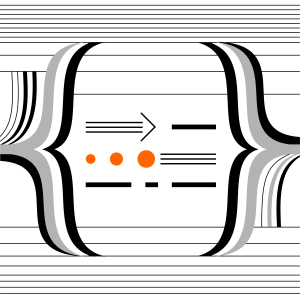Maximizing Efficiency in the Industrial & Marine Sectors
Are you struggling with efficiency in the industrial and marine sectors? Looking for ways to boost productivity while cutting costs?
Operating in the industrial and marine sectors is a challenging task. The environment is often harsh, the stakes are high, and the margins are thin. In such a setting, efficiency is not just a buzzword; it's a survival strategy. And yet, many companies struggle to find ways to become more efficient without compromising on quality or safety.
In this article, we will explore some practical strategies to maximize efficiency in the industrial and marine sectors. We'll also share some entertaining examples from the field, and hopefully, make you chuckle a bit along the way. So, buckle up and let's dive in!
Embracing Technology
One of the most effective ways to boost efficiency is by embracing technology. This doesn't necessarily mean replacing your entire workforce with robots. Instead, think of technology as a tool that can help your employees work smarter, not harder.
-
For instance, consider the use of drones for inspections in the marine sector. Instead of sending a human to climb up a mast or go down into a hull, a drone can do the job faster, safer, and cheaper. And the best part? The drone won't complain about the sea sickness!
-
Another example is the use of advanced analytics in the industrial sector. By collecting and analyzing data from your operations, you can identify bottlenecks, predict maintenance needs, and optimize workflows. Imagine being able to prevent a machine breakdown before it happens. It's like having a crystal ball, but without the vague predictions and the annoying riddles.
Investing in Training
Another key to efficiency is investing in your most valuable resource: your people. Well-trained employees are not only more productive, but they also make fewer mistakes, which can save you a lot of time and money in the long run.
-
Consider, for instance, a crane operator in a shipyard. A well-trained operator can load and unload containers much faster than an untrained one, without damaging the goods or the equipment. It's like watching a ballet dancer versus a bull in a china shop.
-
Or think about a machine operator in a factory. With proper training, they can not only operate the machine more efficiently, but also perform basic maintenance tasks, preventing costly breakdowns. It's like having your own pit crew in a Formula 1 race.
As the saying goes, "Give a man a fish and you feed him for a day. Teach a man to fish and you feed him for a lifetime." Or in this case, "Teach a man to operate a crane and you'll never have to worry about smashed containers again."
As we wrap up, remember that maximizing efficiency is not a one-time effort. It's a continuous process of learning, adapting, and improving. It's about finding new ways to do things better, faster, and cheaper. And most importantly, it's about never settling for "good enough."
So, whether you're operating a fleet of cargo ships or running a steel mill, remember: there's always room for improvement. And with the right approach, you can turn efficiency from a buzzword into a competitive advantage.
And who knows? Maybe one day, you'll be the one sharing your own entertaining examples of efficiency in the industrial and marine sectors. Just remember to keep the humor dry and the sea sickness at bay.





